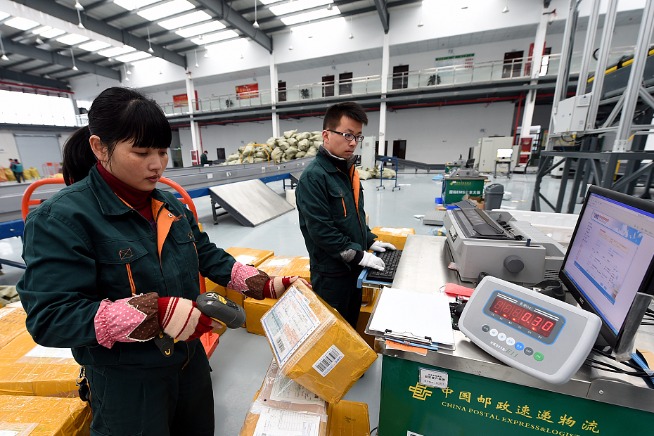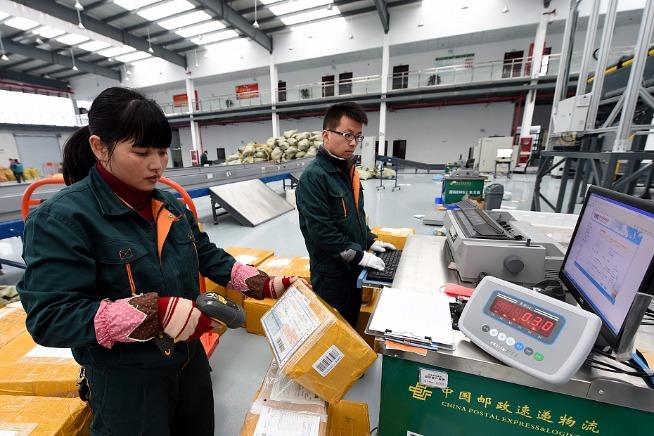
BEIJING -- The online retail sector maintained rapid growth in the first four months of the year amid the ongoing trend of internet giants moving their presence offline.
From January to April, e-commerce companies' revenues increased 31.2 percent year-on-year. In April alone, key online retail companies that the ministry monitors grew 21.4 percent compared to last year. The growth rate is 19.3 percent higher than that seen in department stores, 16.4 percent higher than shopping centers and 16.3 percent higher than supermarkets, according to the ministry.
In China, e-commerce channels are evolving rapidly, with about 60 percent of urban families now shopping via e-commerce channels.
According to Jason Yu, general manager of Kantar Worldpanel China, e-commerce giants are gradually moving offline and are transforming the retail infrastructure, providing consumers with better shopping experiences and enabling brands to achieve incremental growth.
The high costs incurred to attract online traffic have forced big name e-commerce giants to create new retail models, prompting a trend toward expanding into brick-and-mortar retail chains.
According to Kantar Worldpanel, in the first quarter, Alibaba Group Holding Ltd and Tencent Holdings Ltd quickened their expansion into offline retail via mergers and acquisitions.
Offline retailers that are joining the Tencent-influenced group have taken 21.7 percent of the market share, including Yonghui Superstores Co Ltd and Carrefour SA. Yonghui said it expects to open 1,000 hypermarkets this year and 100 supermarkets. Alibaba's measures include acquiring Ele.com and investment in furniture and lifestyle platform Easyhome. This January, the internet giant launched its first community grocery shop for its online Tmall store. The model aims to renovate China's vast amount of community grocery stores with the help of Alibaba's supply chain and merchandise systems.
JD has announced plans to open 1,000 convenience stores to further penetrate lower-tier cities and rural regions in the country. Suning.com Co Ltd said it plans to open 15,000 brick-and-mortar stores over the next three years. (Source: China Daily)




 A single purchase
A single purchase









